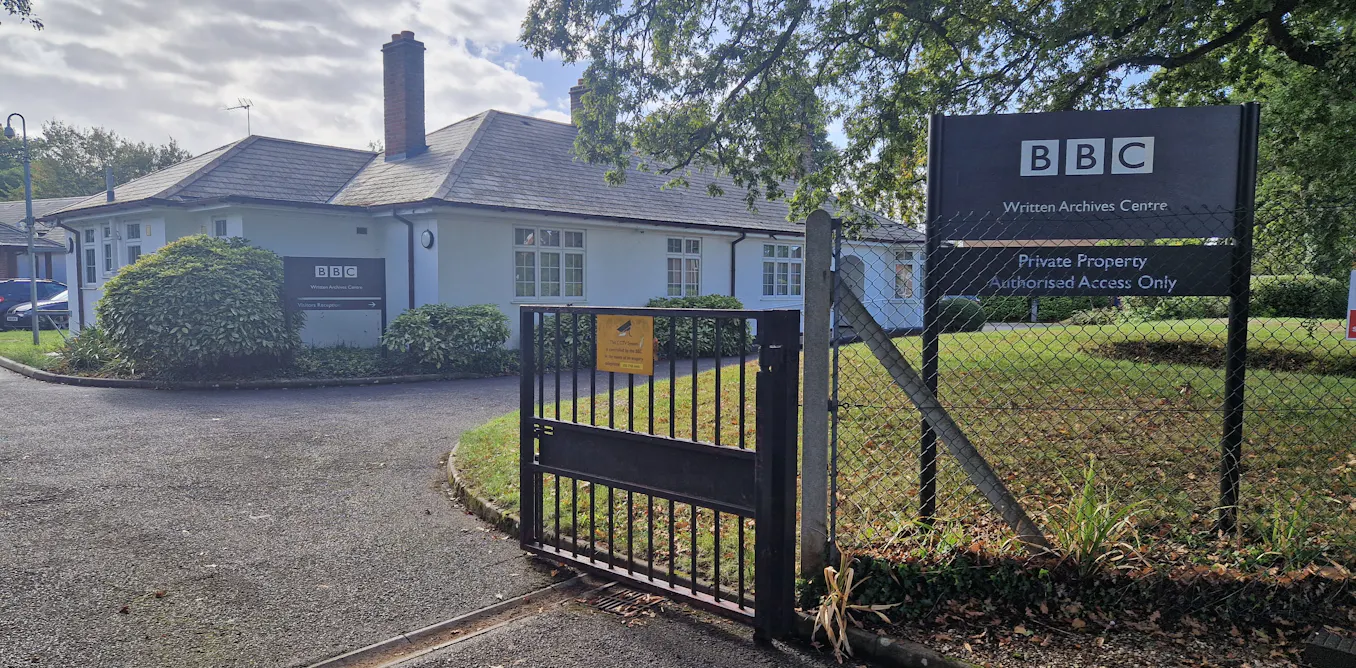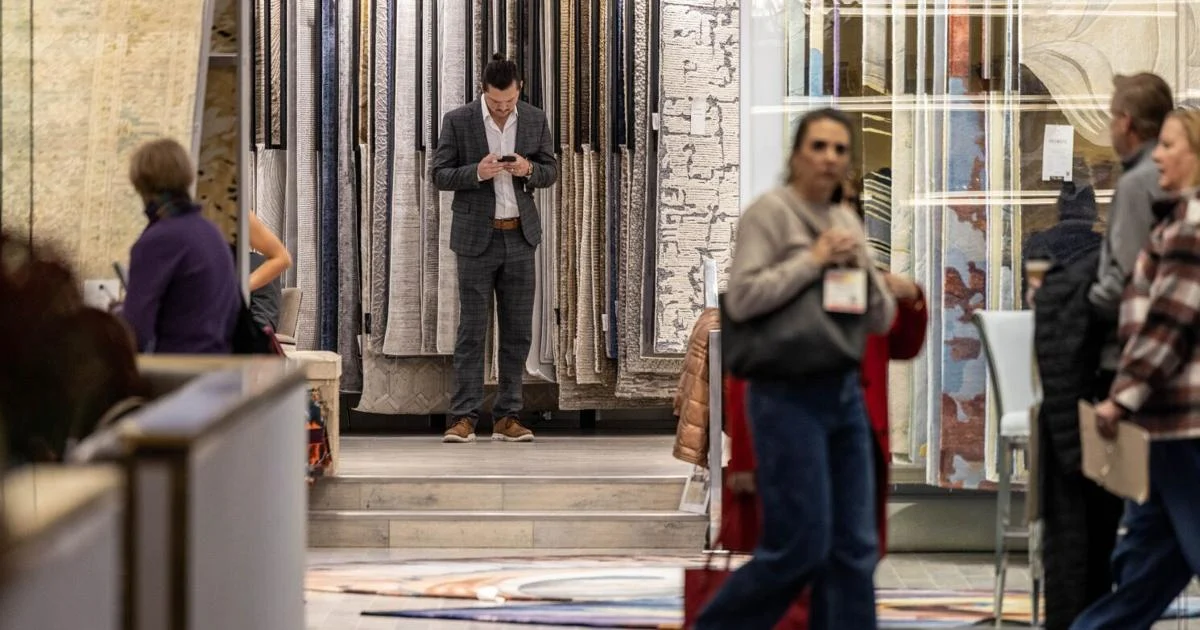Copyright theconversation

The BBC’s Written Archives Centre (WAC) is housed in an unassuming bungalow on the outskirts of Reading, 40 miles west of London. It holds one of the greatest document collections of British and global history from the past century. For half that time, researchers, storytellers and interested members of the public were able to mine its extensive resources for monographs, dissertations and broadcasts relating to the BBC. Recent changes to the conditions of access, however, mean that independent and exploratory research at the WAC is no longer possible. The centre houses scripts, personnel files, production notes, meeting minutes, correspondence and other materials related to BBC radio and TV broadcasts since 1922. It reveals how politicians, pop stars, monarchs and artists have engaged with one of the most powerful media organisations of the past century. It also captures the debates, decisions, and everyday lives behind the BBC’s operations. Because of the BBC’s importance, the WAC’s archives reflect countless aspects of our social, political and cultural history. The changing roles of women since the 1920s have been traced through the riches of the archive, as have transformations in ideas of class and social relations, in understandings of LGBT+ identities, and in celebrations and conflicts of race and immigration. Even so, researchers know there is far, far more to be uncovered. The WAC is one of Britain’s most significant resources for revealing the history of the past century, second only to The National Archives housed at Kew. But earlier this year, the WAC quietly introduced changes to who can use it and how. Personal enquiries from the public can no longer be answered, and the reading room is now only open on Wednesdays and Thursdays. Most significant for researchers was the decision to end the vetting and opening of files on request. Many of the archive users, including myself, feel we were not involved in any meaningful consultation before these changes were made. In 2024, there had been a single online meeting at which a small number of users were asked for their suggestions for improvements. At that meeting there was no mention of the proposed changes and no sense of seeking feedback. No other consultation seems to have been undertaken. Some two-thirds of the hundreds of thousands of WAC files have not yet been opened for use by researchers. Until early this year, the exceptional archivists there would, in response to an enquiry, identify relevant files. They would then read and, if necessary, minimally redact (removing certain personal details, for example) files that had not previously been opened. In the work for my forthcoming history of television between the wars, Magic Rays of Light: The Early Years of Television in Britain, I estimate that roughly half of the 300-plus files I consulted were opened especially for me. The ending of on-request vetting has been made by BBC managers for two reasons, which were shared in online meetings that I participated in. One is the straitened finances of the corporation, which have necessitated severe cutbacks to many services. Suggestions for how to help mitigate this, which were made in meetings by users, so far appear to have been ignored by those responsible for the change. The other reason given for the ending of on-request vetting is an internal shift towards a more focused, curatorial approach to the WAC. Under the new arrangements, batches of files will be made available according to internal priorities decided, like the WAC’s new timetable, solely by the BBC. Those objecting to this change were told that the new priorities will reflect more closely the BBC’s programming and business concerns. This aims to facilitate, for example, a smoother marking of “content moments” such as anniversaries. More than 500 academics and independent researchers, including myself, have signed an open letter expressing “profound concern” about the changes. Recognising that the review of the BBC’s charter is fast approaching, the letter calls on the BBC “to publish a code of practice affirming continuing WAC access and the continued availability of files on request”. Without on-request opening of files, many WAC users feel they are essentially barred from independent research and can no longer plan with any confidence new books or other projects. More generally, they point out that the BBC’s new conditions flout the generally accepted principle for responsible archives of clear separation between the provision of access and the practices of curation. The campaigners also highlight that the WAC is a public resource paid for over decades by public funds through the licence fee. Closing down the channel for independent access, they suggest, infringes in a significant way one of the five public purposes of the BBC defined by the BBC’s Charter: “To support learning for people of all ages.” The campaigners laid out their “public purposes” argument in a different, detailed letter sent directly to the BBC board’s chair, Samir Shah, in mid-August, and in individual letters to each of the members of the board, which has the mandate to deliver the BBC’s mission and public purposes. No response has been forthcoming. The BBC has promised that “some” files will be newly vetted and opened up, decided solely by them, but they have not said how many or what they will be, nor have they outlined a timetable for this. The community of users who journey out to the reading room of the WAC bungalow remain frustrated in their concern to undertake meaningful independent research. When contacted by The Conversation for comment on its changes to the WAC, the BBC responded: We are taking on a new approach to make a wider selection of BBC history accessible and searchable, with an ambition to open up more of the written archive from 30% to 50% over the next five years. Given the level of resource available, we are moving to a series of structured content releases rather than individual requests for specific content, which will open up the written archive further and deliver greater value for all licence fee payers. The service will continue to offer access and reading room visits for researchers and support freedom of information and subject access requests. Moving to a series of structured content releases rather than individual requests for specific content … will open up the archive and deliver greater value for licence fee payers and support learning for people of all ages. Looking for something good? Cut through the noise with a carefully curated selection of the latest releases, live events and exhibitions, straight to your inbox every fortnight, on Fridays. Sign up here.



